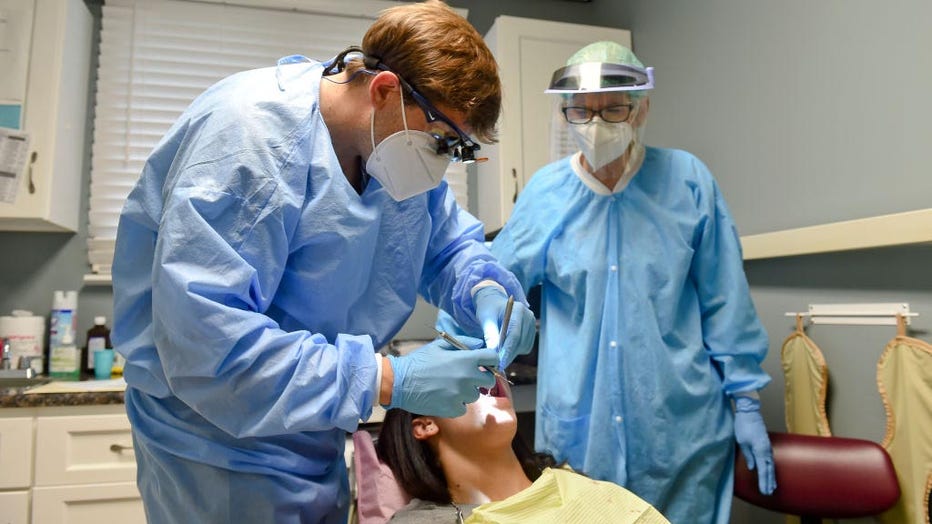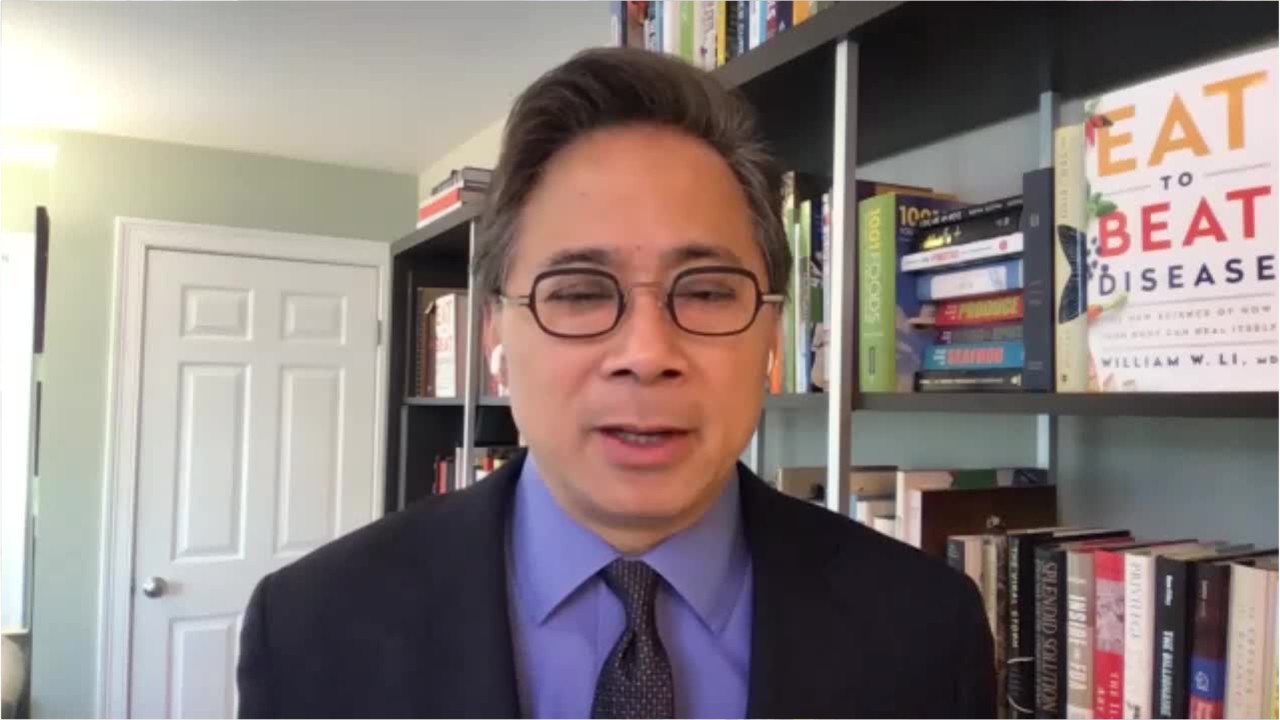Tooth loss, other dental issues reported in COVID-19 patients
Survivors of COVID-19 are reporting tooth loss and other dental issues among a long list of bewildering symptoms linked to the novel coronavirus.
Lindsey Kirkman Wilcox, a 36-year-old opera singer who was diagnosed with the coronavirus in August, has suffered a multitude of ailments since testing positive, including the loss of several teeth. She said prior to becoming infected, she was physically active and healthy — including healthy teeth.
Wilcox said within three to four weeks during the course of her recovery, she lost four teeth.
"I was talking to my husband one day just in our family room and all of a sudden my tooth just fell out of my mouth. They’re just breaking. My tooth enamel is just coming off," she said.
This week, another tooth toward the front broke off while Wilcox was eating a sandwich, she added.
"(The dentist) had no idea what to tell me," Wilcox said. He suggested she use a sensitive toothpaste or Listerine mouthwash in case of a bacterial infection.
"I have two more that have to come out because I had so much inflammation, just all the vessels in my mouth and the nerves," Wilcox said.

A dentist checks a patient's teeth in a file image taken Oct. 13, 2020 in Leesport, Pennsylvania. (Photo by Ben Hasty/MediaNews Group/Reading Eagle via Getty Images)
Wilcox is among a number of recovering COVID-19 individuals who report experiencing dental issues, including the deterioration of teeth.
An online group called "Survivor Corps," focused on mobilizing the support of COVID-19 patients, has amassed nearly 125,000 members. Many consider themselves to be "long haulers," or those who still haven’t fully recovered from COVID-19 weeks or even months after symptoms first appeared.
RELATED: ‘Today is day 93’: People report experiencing COVID-19 symptoms that last for months
Diana Zicklin Berrent founded the group after becoming one of the first people in her area of Long Island, N.Y. to test positive for the virus. Berrent’s 12-year-old son, who also contracted the virus, recently lost an adult front tooth nine months after testing positive.
"The bottom right front tooth is no longer there. The left front isn't looking great either," she wrote Nov. 10 on Twitter. Berrent added that her son already had braces on his upper teeth, but lower ones were added to stabilize his teeth.
A quick search in the Survivor Corps group shows dozens of personal stories from COVID-19 long-haulers who say they’ve experienced similar issues. There are anecdotal reports of teeth chipping or falling out, and gums being swollen, painful and bloody.
In one post, a woman writes that she never had dental issues prior to becoming infected with the virus, but later needed a root canal and suffered deterioration of her teeth amid her long-haul recovery.
Since the onset of the outbreak earlier this year, researchers have continued to analyze how the novel coronavirus can impact the body. Symptoms, including rashes on the toes and blood clots in various organs, have led many, like Dr. William Li, to look to the body’s blood vessels for answers.
In a study published in May, Li and a team of researchers compared the lungs of patients who died from COVID-19 with those who died from influenza A (H1N1). They found that the lung tissues of COVID-19 patients had nine times as many clots in the small blood vessels as did those who died of influenza. They also found damage in the lining of the blood cells in COVID patients.
"We found that although the coronavirus caused respiratory disease, this respiratory virus once it was in your body made a beeline to infect your blood vessels," said Li, a vascular biologist who founded the Angiogenesis Foundation, a nonprofit research organization that studies blood vessels and how they relate to many different diseases.
Li said blood vessels could be a possible explanation for Wilcox and others who’ve experienced dental issues during the course of their months-long recovery, as the center of the tooth contains a network of both nerves and blood vessels.
"If we know that the blood vessels can be infected by COVID in the lung, in the heart, in the kidney and elsewhere, then it is also possible that the blood vessels are also infected by the virus in the teeth," he said.
Li, who is currently involved with research on this issue, said there remain "more questions than answers."
"I don’t think we can jump to any premature conclusions, but it’s certainly eye-opening," Li said. "And it puts tooth loss on the radar as a potential complication of long-term COVID."
In a statement, the American Dental Association (ADA) said it is not aware of data showing that those dealing with long-term consequences of COVID-19 are at increased risk of tooth loss, but is continuing to explore the interaction of the virus with various tissues in the mouth.
"It’s likely that at least some of the dental problems being seen among long-haulers stem from an issue (or issues) present before the people were infected with the virus. And for some, the extended period of serious illness likely means they had an extended period of time where routine oral care went by the wayside," the ADA added.
What’s becoming clear for researchers like Li is that there may be a "long tail" to the virus for some people, which can linger for longer than the average case and appear in different ways.
"We’re now alert to asking the question, ‘Could this be a long-term complication of COVID?’ Meaning, that the virus has long left the house, but the damage that it leaves behind is still affecting the way that we’re able to get back to health," Li said.
"In other words, there may be a long tail to this disease beyond simply getting our lungs back in order."
This story was reported from Cincinnati.


